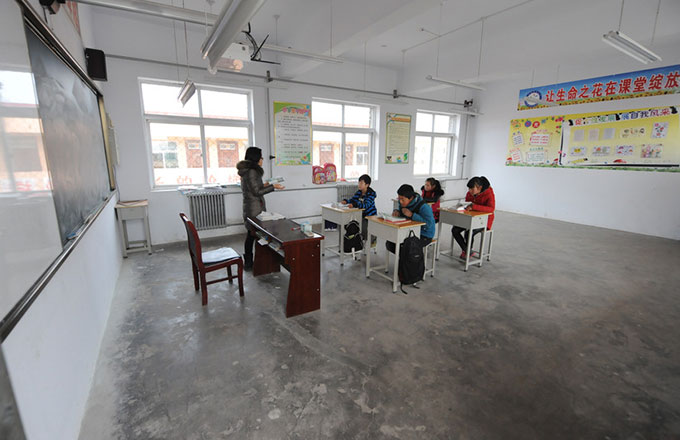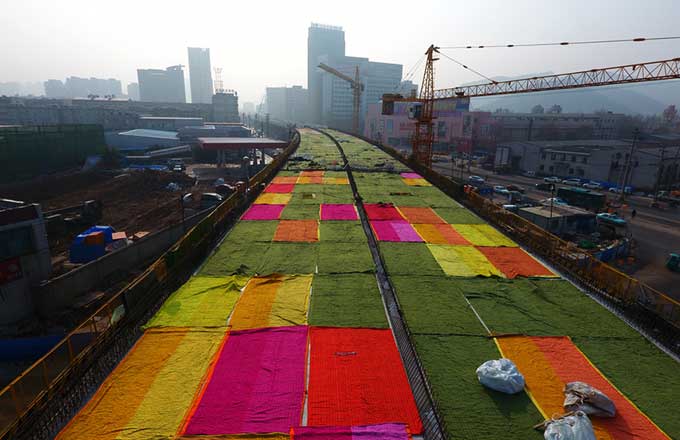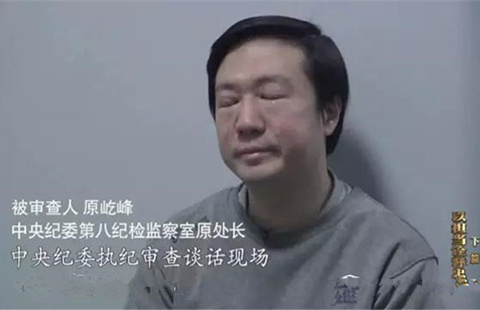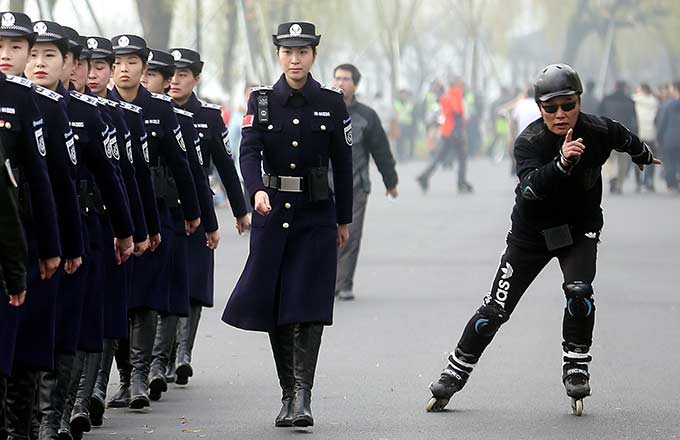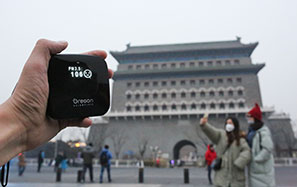Environmental improvement moves forward despite obstacles
BEIJING - China has been cleaning its environment and will continue to improve the response of local governments to pollution, the Ministry of Environmental Protection (MEP) said.
China has made improvements in environment despite strong headwinds, such as an economic structure burdened by heavy industry, an energy mix reliant on fossil fuels, and environmentally unfriendly lifestyles, according to Chen Jining, minister of environmental protection.
Chen made the remarks at a press conference on Friday night in response to lingering smog that has shrouded north China and even some southern cities for about a week.
China's national observatory on Tuesday issued a red alert for fog in a number of northern and eastern regions, the first ever national red alert for fog. Meanwhile, north China has been under high-level smog alerts since late December.
The Beijing-Tianjin-Hebei region and neighboring provinces, the area hit hardest by smog, are major coal consumers and are home to a large share of China's steel, coke and cement production as well as automobiles, according to Chen.
"The root cause of the region's smog problems, from a long-term perspective, is the unclean industrial and energy mix, which require big changes," Chen said.
He said that monitoring results in the Beijing-Tianjin-Hebei region show that the government's efforts have paid off in the past few years as the average concentration of PM 2.5 fell by about 30 percent in 2016 compared with 2013. However, there seems to be little winter air quality improvement.
Unfavorable weather conditions and inefficient winter heating have also contributed to the lingering smog, Chen added.
To address the problems in winter, China will phase out unclean and inefficient coal-fired boilers, encourage off-peak industrial production and enhance scrutiny and punishment for violations of the rules.
Inspections found some cities failed to take effective measures following alerts, or their measures were not feasible.
The MEP is evaluating the emergency plans of 20 cities to deal with heavy air pollution with the aim of improving their response. The cities include Beijing, Tianjin and 18 others in Hebei and surrounding provinces, according to Chen.
"Environmental protection cannot be achieved through reckless efforts, but requires scientific and orderly approaches to reduce the social impact and ensure effectiveness," he said.
The ministry will enhance supervision over whether local governments have taken precautions, according to the minister.
Chen vowed to take concrete steps and employ more stringent and effective measures to deal with outstanding environmental problems and improve environmental quality.
On Monday, the ministry announced that 10 inspection teams discovered companies had resumed production despite a government ban, as well as non-compliance with emissions reduction measures.
When authorities issue red alerts, some manufacturing companies are required to cut production, and heavily polluting vehicles are banned from the roads.
The ministry issued punishments after finding that more than 500 construction sites and enterprises and 10,000 vehicles were in violation of pollution response plans.
"We should not lose confidence due to occasional heavy smog. Improving environmental quality is an uphill battle that takes both effort and time," Chen added.





